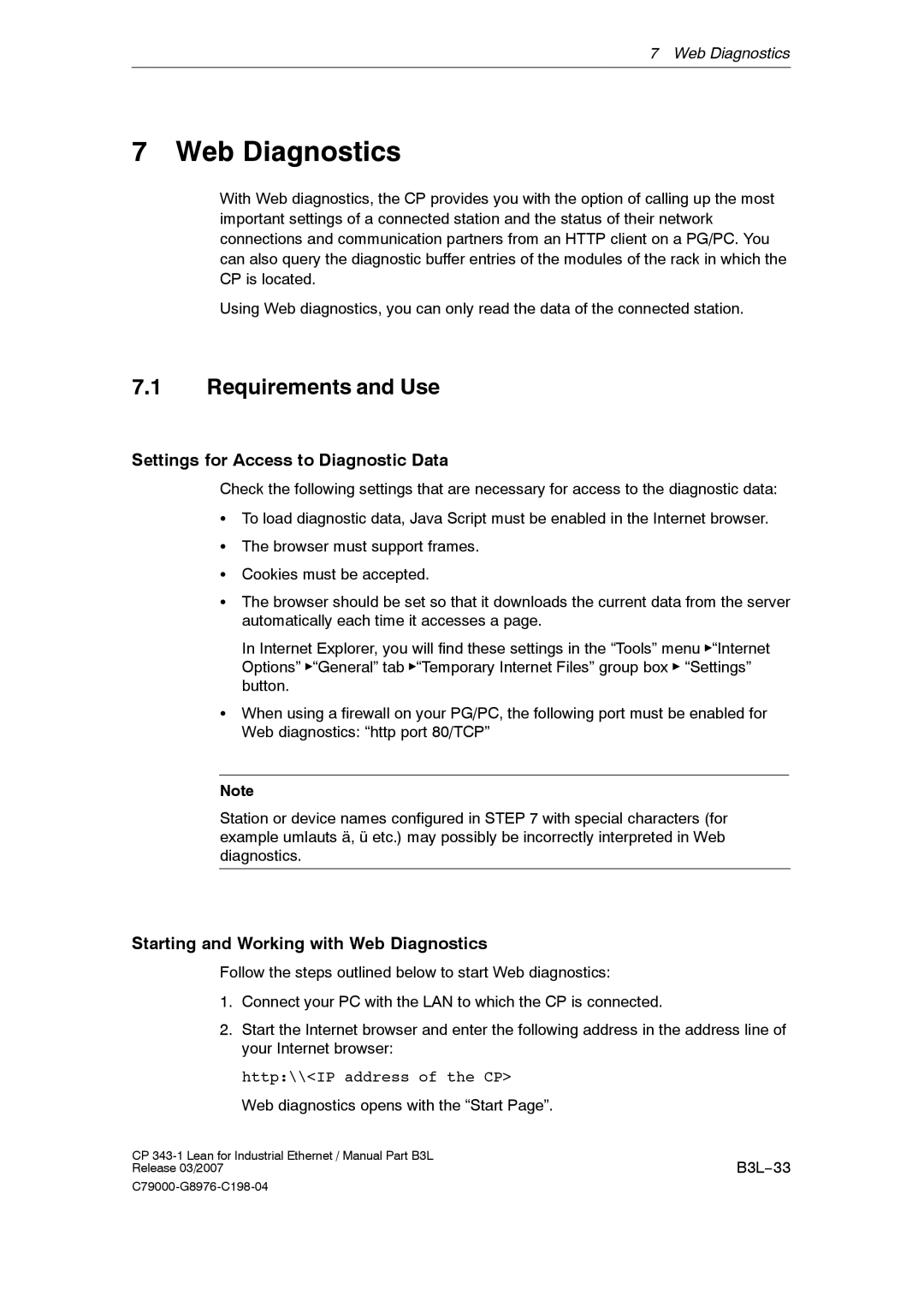
7 Web Diagnostics
7 Web Diagnostics
With Web diagnostics, the CP provides you with the option of calling up the most important settings of a connected station and the status of their network connections and communication partners from an HTTP client on a PG/PC. You can also query the diagnostic buffer entries of the modules of the rack in which the CP is located.
Using Web diagnostics, you can only read the data of the connected station.
7.1Requirements and Use
Settings for Access to Diagnostic Data
Check the following settings that are necessary for access to the diagnostic data:
STo load diagnostic data, Java Script must be enabled in the Internet browser.
SThe browser must support frames.
SCookies must be accepted.
SThe browser should be set so that it downloads the current data from the server automatically each time it accesses a page.
In Internet Explorer, you will find these settings in the “Tools” menu "“Internet Options” "“General” tab "“Temporary Internet Files” group box " “Settings” button.
SWhen using a firewall on your PG/PC, the following port must be enabled for Web diagnostics: “http port 80/TCP”
Note
Station or device names configured in STEP 7 with special characters (for example umlauts ä, ü etc.) may possibly be incorrectly interpreted in Web diagnostics.
Starting and Working with Web Diagnostics
Follow the steps outlined below to start Web diagnostics:
1.Connect your PC with the LAN to which the CP is connected.
2.Start the Internet browser and enter the following address in the address line of your Internet browser:
http:\\<IP address of the CP>
Web diagnostics opens with the “Start Page”.
CP | B3L−33 |
Release 03/2007 |
